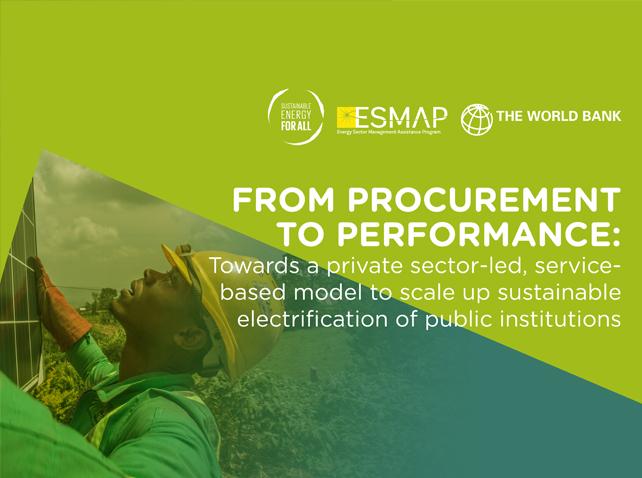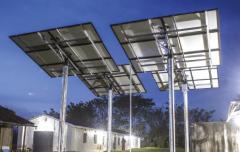From Procurement to Performance: Towards a private sector-led, service-based model to scale up sustainable electrification of public institutions
Providing quality social services, such as health care and education, is virtually impossible without access to reliable electricity in health facilities and schools. And yet, power is unavailable or unreliable in most health facilities and schools across Sub-Saharan Africa and South Asia. Off-grid solar combined with battery storage presents an opportunity to provide clean, reliable, quickly dispatchable and cost-effective electricity to underserved social infrastructure but ensuring that these solutions can provide electricity on a long-term, sustainable basis does not come without its challenges.
To date, most public institution electrification efforts have been grant-based, donor-supported projects that largely focus on the procurement of solar photovoltaic (PV) assets. This focus has led to a bias towards equipment-ownership models, and because of relatively short project timelines, timely disbursement is inevitably prioritized over long-term operation and maintenance (O&M) planning. Such an approach can compromise the long-term sustainability of solar PV systems since the focus is more on the procurement of assets than on service delivery and performance.
As explored in this knowledge brief, a service-based model represents an opportunity for a new set of stakeholders — primarily from the private sector — to take on an expanded role in the delivery of energy services to public institutions (e.g., rather than just focusing on procurement and installation). It also changes how electricity is paid for by the end-user (or the organizations that support them), shifting from the procurement of energy assets to paying for energy services.




